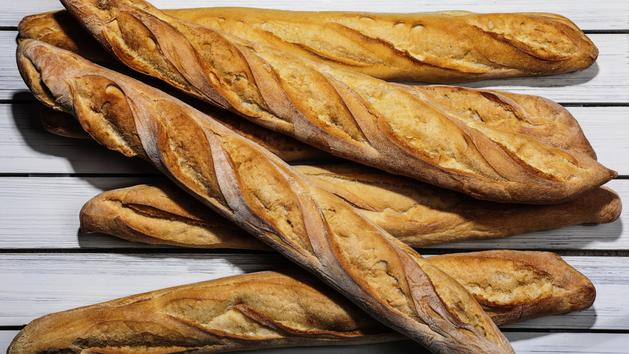One word is enough to transport us to new lands, countries we have never visited. The word " syrup " comes from the Arabic sarab , " drink ". " Sailor " is borrowed from the Dutch mattenoot, " mating companion ". Le Figaro invites you to (re) discover the origin of apparently harmless terms, thanks to the illuminating work by Marie Treps, Les mots voyageurs: a little history of French from elsewhere.
Read also: Five words to grumble and complain elegantly
The words of food
Let's start with the essential and very French “baguette” of bread. " Not overcooked " or "tradition" , cereal or whole, here is its etymology: the term comes from the Italian bacchetta , " little stick " attested since 1348 as we read in The Treasury of the French language. Bacchetta " probably relates to the Latin baculum ," stick " ". According to Marie Treps, " baguette " was added to our vocabulary in the 16th century. “ But, upon entering French, this other twig is required to symbolize authority in the expression leading to the wand . "
Let's stay a while in the tasty world of baking and pastry, and observe the origin of the term "croissant" . First, know that this bun "is Austrian and we owe it to the Turks!" Croissant , which translates the German Hörnchen , "little horn", arrives straight from Vienna in 1863 " . It is indeed in the capital that in 1689, the first croissants were designed " to celebrate the departure of the Turks and to pay tribute to the heroic conduct of Viennese bakers during the siege of their city ", says the author.
Take to the open sea and swim among haddock, bass and porpoise. “Haddock” (or “ haddock ”) comes from the Dutch schelvisch . It is around 1300 that we borrow it. “ We were so uncomfortable with this foreign-sounding word, says Marie Treps, that we made various attempts at acclimatization. There was " esclefin " then, in 1555, " haddock ". What about the “bar” which “ owes its name to its dorsal fins made of hard prickles ”? It comes from the Dutch medium baerse , " itself related to borstel , which means' 'hair, brush' ' ' and was attested in French at the end of the 12th century. The origin of the “porpoise” will astonish you. Indeed, this word borrowed in the 14th century, comes from the Danish or perhaps the Swedish marsvin literally meaning ... " sea pig ".
Everyday expressions
"High five !" The formula is used after having concluded a contract. As Marie Treps reminds us, the “ tope! Is a " game term borrowed in 1640 from the Spanish topo", namely the first person of the verb topar . The latter is " built on an onomatopoeic radical translating the noise of two people clapping each other ".
"It’s messing around in this room!" The expression is not very elegant but widely used. Note also that it is found in Les Misérables by Victor Hugo: “Children, you have to sleep, my young humans. It is very bad not to sleep. It makes you wander from the hallway, or, as we say in the big world, stink of the face ». The word comes from the German schlagen , "to whip " or "to strike" .
The same goes for the familiar "mouise" , " introduced around 1821 in eastern dialects ", from the German dialect of South Mues , " boiled ", recalls Marie Treps. This term " first designated a soup, then the excrement and finally the misery, the troubles, in the expression still very much alive being in the limelight".
"But he's completely brooding !" The formula may be less popular than before. Note, however, that the term comes from the Arabic mahbûl , a word " brought back by the soldiers of Algeria ". There, he means " idiot ". It is in 1830 that this slang term integrates the French vocabulary.
Sacred characters ...
We all know one. A boastful, a boastful, a bravery ... In a word: a " swagger ". In Spanish, fanfarron means " the talker " and comes from the Arabic farfâr , " of onomatopoeic origin ". It would not be surprising that a braggart also be a " coward " , that is to say a " coward ." The latter comes from the Italian poltrone , analyzes Marie Treps: " fearful " but also, " lazy ". “ In poltrone, we mean poltro , which designates a foal that has not yet been tamed. "
The dictionary contains a literary word to designate a " man with a chivalrous and idealistic spirit ", as described by Le Trésor de la langue française: un "hidalgo" . We find in 1534, the trace of the written term indalgo, as noted by Marie Treps. The word comes from the Spanish hidalgo , " gentleman ", " made by contracting hijo de algo". That is to say: " son of something ".







/cloudfront-eu-central-1.images.arcpublishing.com/prisa/KMEYMJKESBAZBE4MRBAM4TGHIQ.jpg)



